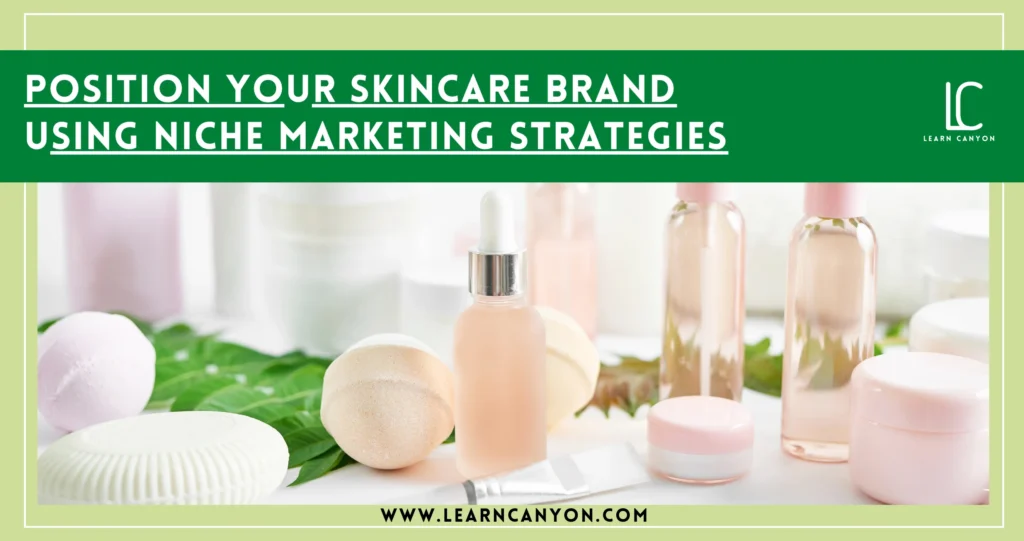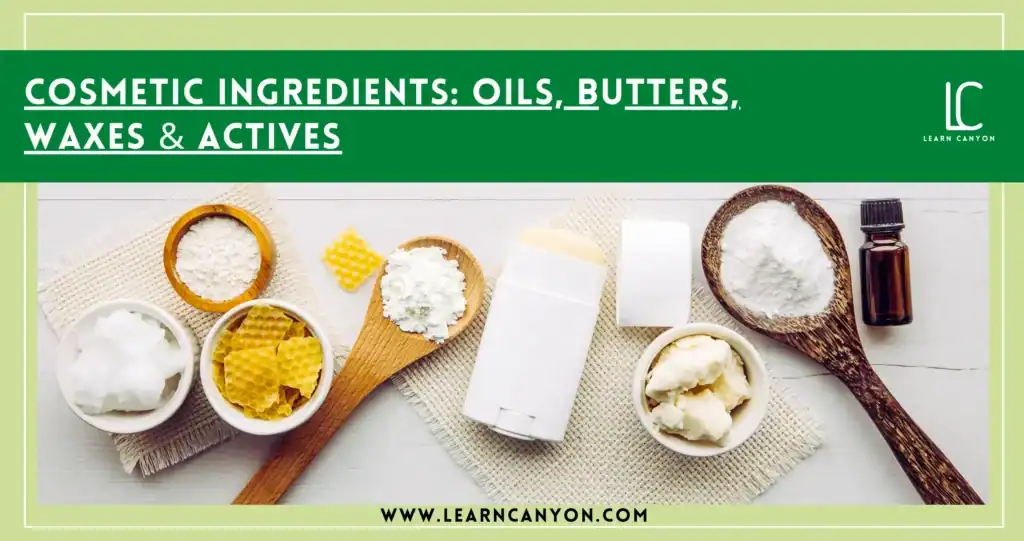Even though the beauty industry is evolving with many new skincare products in and out in the market all around the globe to meet their consumer needs, people are not happy and satisfied with the mainstream offerings and showcases of various cosmetic types as they are looking for more customized solutions for their skin that would cater to their skin type, lifestyle, and values.
What can be done here to satisfy your consumers if they are overwhelmed with a lot of options and no specific solution?
Maybe, it’s time to consider your marketing strategies such as using NICHE MARKETING to position your skincare brand in a crowded market in such a way that your customers will have eyes only for your brand!
Isn’t the strategy amazing?
In today’s saturated skincare market, standing out is more crucial than ever. With countless brands vying for consumer attention, niche marketing has emerged as a powerful strategy for positioning your skincare brand effectively.
By focusing on specific market segments, brands can tailor their messaging and product offerings to meet targeted consumers’ unique needs and preferences.
Identifying a niche allows brands to differentiate themselves from competitors and build a loyal customer base. Whether it’s organic ingredients, cruelty-free formulations, or solutions for specific skin concerns, carving out a distinct identity can increase brand recognition and customer trust.
This article will explore effective strategies for leveraging niche marketing to establish a strong presence in the crowded skincare landscape.
Understanding Niche Marketing & Your Target Audience
Consider niche marketing to be an assault rifle in your marketing arsenal. It is not about firing rounds in the expectation of striking anything in the mass market. Instead, it’s about focusing your crosshairs on a very precise target client and making every shot count.
Here’s the offer; Niche marketing focuses on certain portions of the target market, not just any group, but those with similar interests or problems. It’s like discovering that one segment in a wider market that is simply waiting for your niche offerings. This is a game of depth vs breadth. You delve deeply into knowing a smaller, specialised group – those high-intent clients who aren’t just looking but are nearly ready to buy.
Identifying Target Audience & Their Specific Skincare Concerns
Identifying your intended audience and potential consumers requires investigating their purchasing habits, interests, and demographics. This can be accomplished through market research, social media analytics, and consumer data.
Assessing your potential clients’ demographics, such as age, gender, economic level, and geographic area, can help you target your advertising efforts more efficiently.
Customer feedback and surveys can also reveal vital information about your ideal consumers’ preferences and wants. This input may be utilised to develop a buyer persona and a complete profile of your ideal consumer, which will help you plan your content development and marketing initiatives.
You may gain a better understanding of their specific skincare demands based on their specific skincare concerns such as oily, dry, combination, acne-prone and so on. And adjust your products, services, and marketing activities to their preferences. This can lead to more effective and tailored marketing campaigns, resulting in improved conversion rates and consumer satisfaction.
Benefits of niche marketing for skincare brands
1. Targeted Audience Engagement
- Tailoring your marketing messages to a specific audience ensures that your communications resonate more effectively, leading to better engagement and higher conversion rates.
- By understanding the unique needs and preferences of your niche market, you can create personalized experiences that build stronger connections with your customers.
2. Reduced Competition
- Niche markets often have fewer competitors, making it easier to stand out and establish a strong presence.
- Entering a less crowded segment of the market can be more accessible and cost-effective, especially for smaller or new skincare brands.
3. Enhanced Brand Loyalty
- Niche marketing allows for more meaningful interactions with customers, fostering loyalty and long-term relationships.
- Satisfied niche customers are more likely to become repeat buyers and brand advocates, leading to higher customer retention rates.
4. Increased Profit Margins
- Niche products often justify premium pricing due to their specialized nature and unique value propositions, resulting in higher profit margins.
- Customers in niche markets are often willing to pay more for products that meet their specific needs or align with their values.
5. Better Market Positioning
- Focusing on a niche allows you to develop a strong Unique selling proposition (USP) that differentiates your brand from competitors.
- Establishing yourself as an expert or specialist in a particular niche can enhance your brand’s credibility and authority.
6. Effective Resource Allocation
- Concentrating your marketing efforts on a specific audience allows for more efficient use of resources, resulting in higher ROI.
- Understanding your niche market enables you to develop products that are precisely tailored to your customers’ needs, reducing waste and increasing satisfaction.
Examples of successful niche marketing in the skincare industry
1. Glossier
- Niche Focus: Minimalist and community-driven beauty
- Unique Selling Proposition (USP): Glossier is known for its “skin first, makeup second” philosophy, offering products that enhance natural beauty rather than covering it up.
- Success Strategy: The brand’s niche marketing strategy revolves around engaging with its community through social media and involving customers in product development, creating a strong sense of loyalty and belonging.
2. Paula’s Choice
- Niche Focus: Evidence-based skincare
- Unique Selling Proposition (USP): Paula’s Choice focuses on products backed by scientific research and free of fragrances and dyes, appealing to consumers looking for effective, no-nonsense skincare solutions.
- Success Strategy: The brand educates its customers through detailed product information and skincare advice, positioning itself as a trusted expert in skincare science.
How to Find a Niche Market for Your Skincare Brand
Following the steps mentioned below can help you how to find a niche market for your skincare brand, and help set yourself up for success in a crowded and competitive industry.
1. Conduct Market Research
- Analyse the Skincare Industry: Study the current market landscape, including trends, key players, and consumer behaviour. Use industry reports, market surveys, and online research to gather data.
- Identify Gaps and Opportunities: Look for underserved or emerging segments in the market. Identify areas where consumer needs still need to be fully met.
2. Define Your Target Audience
- Create Customer Personas: Develop detailed profiles of your ideal customers, including demographics (age, gender, income, location), psychographics (lifestyle, values, interests), and skincare concerns (acne, ageing, sensitivity).
- Understand Their Needs and Preferences: Conduct surveys, interviews, and focus groups to gain insights into your target audience’s skincare routines, preferences, and pain points.
3. Analyze Competitors
- Identify Direct and Indirect Competitors: List brands that offer similar products and those that cater to a similar audience. Study their strengths, weaknesses, and market positioning.
- Evaluate Competitor Strategies: Analyze their product offerings, pricing, marketing tactics, and customer reviews. Identify what sets them apart and areas where they may be lacking.
4. Narrow Down Your Niche
- Focus on Specific Skin Concerns: Choose a particular skincare issue such as acne, ageing, hyperpigmentation, or sensitive skin.
- Consider Unique Ingredients or Formulations: Opt for products based on specific ingredients like retinol, vitamin C, hyaluronic acid, or natural/organic components.
- Cater to Specific Demographics: Target a particular demographic group such as men, teenagers, or seniors.
- Emphasize Ethical and Sustainable Practices: Focus on sustainability, cruelty-free practices, or vegan formulations to attract eco-conscious consumers.
5. Develop a Unique Selling Proposition (USP)
- Highlight What Makes Your Brand Unique: Identify the key benefits and unique features of your products that set you apart from competitors.
- Craft a Compelling Brand Story: Develop a brand narrative that resonates with your target audience and communicates your values and mission.
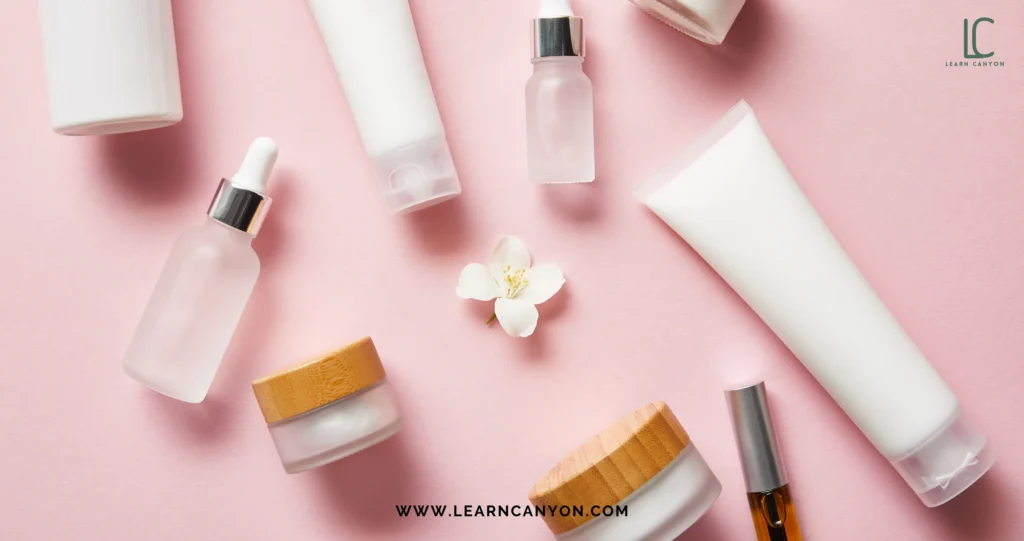
6. Test Your Concept
- Create Prototypes or Samples: Develop initial product samples or prototypes based on your niche focus.
- Gather Feedback: Share samples with a small group of your target audience and gather feedback on the product’s effectiveness, packaging, and overall appeal.
- Refine Based on Insights: Use the feedback to make necessary adjustments to your products and branding before a full-scale launch.
7. Develop a Marketing Strategy
- Choose the Right Channels: Select marketing channels that are most effective for reaching your target audience, such as social media, influencers, email marketing, or content marketing.
- Craft Tailored Messaging: Develop marketing messages that speak directly to the needs and preferences of your niche market.
- Engage with Your Community: Build a community around your brand by interacting with your audience through social media, blogs, and forums.
8. Launch and Promote Your Brand
- Create a Buzz: Use teaser campaigns, influencer collaborations, and pre-launch events to generate excitement and anticipation.
- Leverage Digital Marketing: Utilize SEO, paid ads, and social media marketing to reach a wider audience.
- Monitor and Adjust: Continuously monitor the performance of your marketing campaigns and make adjustments based on data and feedback.
9. Build Relationships and Foster Loyalty
- Offer Exceptional Customer Service: Ensure that your customers have a positive experience with your brand, from purchasing to post-purchase support.
- Create Loyalty Programs: Develop programs that reward repeat customers and encourage word-of-mouth referrals.
- Engage with Your Audience: Keep your community engaged through regular updates, interactive content, and personalized communications.
Creating a Unique Selling Proposition for Your Skincare Line
Key variables to consider when developing a USP;
- Form a social community.
- Maximise the power of social media
- demonstrate your product claim
- Display testimonials and clinical research to back up your product’s claims.
Creating a unique selling proposition for your skincare line makes your skincare brand distinct from competitors and makes customers wonder why they should CHOOSE your products.
Here’s a step-by-step guide to creating a powerful USP for your skincare line:
1. Understand Your Target Market
- Identify who your ideal customers are, including their demographics (age, gender, income) and psychographics (lifestyle, values, interests).
- Understand the specific skincare concerns and challenges your target audience faces, such as acne, ageing, sensitivity, or dryness.
2. Analyze Your Competitors
- List your main competitors and analyze their products, pricing, marketing strategies, and customer reviews.
- Understand what differentiates their cosmetic brands and products in the market.
- Identify areas where competitors are lacking or where there’s an opportunity to offer something unique.
3. Highlight Your Brand’s Unique Qualities
- Emphasize any special ingredients, such as rare botanicals, organic components, or scientifically advanced compounds. Understand what unique formulations you can come across.
- Focus on the key benefits and results your products provide, such as anti-aging effects, hydration, or acne treatment.
- If your brand follows sustainable, cruelty-free, or eco-friendly practices, highlight these aspects to appeal to environmentally conscious consumers.
4. Craft a Compelling Brand Story
- Share the inspiration behind the creation of your brand. Personal stories or challenges overcome can create an emotional connection with customers.
- Clearly articulate your brand’s mission and long-term vision. Explain what drives your brand and how you aim to make a difference in the skincare industry.
5. Focus on Customer Experience
- Highlight exceptional customer service, personalized consultations, or satisfaction guarantees.
- Emphasize how your brand builds and engages with its community, such as through social media, events, or loyalty programs.
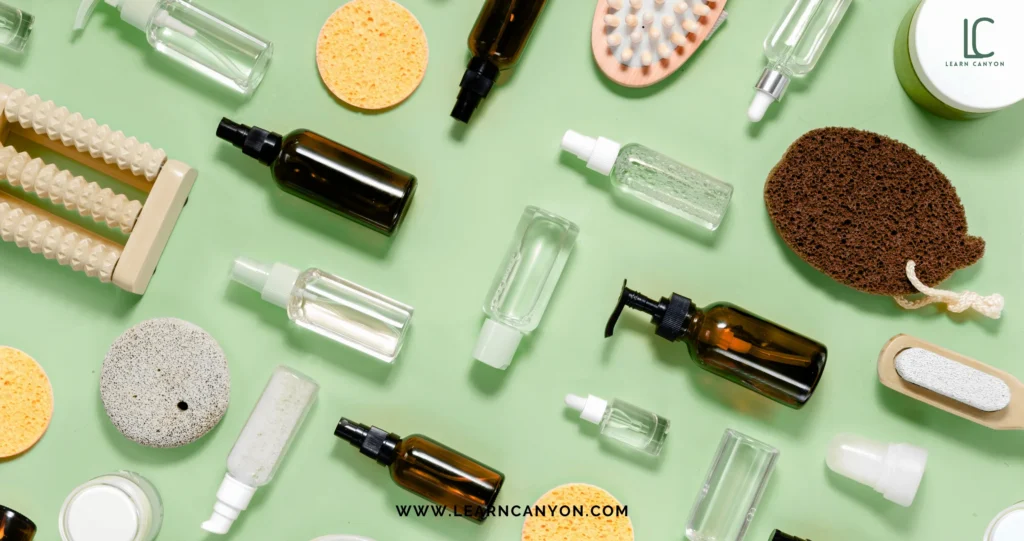
6. Develop Your USP Statement
- Your USP should be a short, clear statement that communicates the unique value of your brand.
- Focus on the specific benefits and results your products deliver to the customer.
- Clearly state what makes your products different from and better than competitors.
7. Test and Refine Your USP
- Share your USP with a small group of loyal customers or a focus group to gather feedback.
- Use the feedback to refine your USP, ensuring it resonates with your target audience and accurately reflects your brand’s unique qualities.
8. Integrate Your USP into All Aspects of Your Cosmetic Brand
- Ensure your USP is prominently featured on your website, social media profiles, advertising campaigns, and product packaging.
- Consistently communicate your USP across all touchpoints, including customer service interactions, email marketing, and in-store experiences.
- Train your staff to understand and effectively communicate your USP to customers.
Benefits that Make Your Brand Unique
1. Unique Ingredients and Formulations
- Incorporating rare or exotic botanical ingredients that are not commonly found in other skincare products.
- Utilizing cutting-edge scientific research and technology to create effective skincare formulations.
- Focusing on natural, organic, or sustainably sourced ingredients to appeal to eco-conscious consumers.
2. Specific Skin Concerns
- Develop skincare products specifically designed to address particular skin concerns such as acne, ageing, hyperpigmentation, or sensitive skin. Backing up claims with clinical trials or scientific studies that demonstrate the effectiveness of your products.
3. Ethical and Sustainable Practices
- Using recyclable, biodegradable, or reusable packaging materials to reduce environmental impact.
- Ensuring products are cruelty-free and vegan, appealing to ethically minded consumers.
- Committing to sustainable sourcing practices for all ingredients.
4. Customer Experience and Service
- Offering personalized skincare consultations or custom product formulations to meet individual customer needs.
- Providing outstanding customer service, including easy returns, quick responses to inquiries, and a satisfaction guarantee.
- Building a strong community around your brand through social media engagement, events, and loyalty programs.
5. Visible and Lasting Results
- Developing products that provide noticeable improvements in a short period.
- Creating products that offer long-lasting benefits, improving skin health over time.
6. Innovative Product Delivery
- Offering convenient subscription services for regular delivery of skincare products.
- Developing innovative application methods, such as delivery systems that enhance the effectiveness of active ingredients.
7. Inclusive and Diverse Products
- Wide Range of Products & Inclusivity; Offering a wide range of products suitable for different skin types, tones, and conditions. Ensuring that products are inclusive and cater to a diverse customer base.
Developing a Strong Brand Identity
- Define your brand’s key beliefs. Start by determining your brand’s key beliefs. These principles should be consistent with your target audience’s beliefs and meet their wants and desires.
- Understand your target audience: Creating a brand personality that resonates with your target audience requires a thorough grasp of who they are, what they value, and how they view your brand. Conduct market research, analyse customer feedback, and interact with your audience on social media to learn about their interests and aspirations.
- Develop a distinct brand voice: Your brand voice is the tone and style of communication you employ to interact with your target audience. It should reflect your brand’s personality and beliefs.
- Consistency is essential for developing a strong brand personality. Guarantee that your brand’s personality is consistent throughout every point of interaction, such as your website, social media profiles, packaging, and customer support. Consistency fosters trust and familiarity, allowing your target audience to better engage with your brand.
- Use narrative: Storytelling is an effective method for developing a skincare brand personality. Communicate your skincare brand’s story, mission, and values with your audience by creating intriguing narratives that touch their emotions.
- Design a memorable and versatile logo that embodies your brand’s essence. Choose a colour palette that reflects your cosmetic brand’s personality and appeals to your target audience. Select fonts that enhance readability and align with your brand’s tone. Use consistent and high-quality imagery that showcases your products and reinforces your brand’s aesthetics.
Creating a Targeted Marketing Strategy (Market Positioning)
Tailoring marketing positioning to your niche audience
Marketing positioning is about creating a unique image and place for your brand in the minds of your target audience.
For a niche cosmetic brand, this involves highlighting specific attributes that resonate with a distinct group of consumers.
Here’s a comprehensive guide to tailoring marketing positioning for your niche cosmetic brand:
- Segmentation and Target Audience:
Before launching a cosmetic product, companies must carefully categorise their target population. This requires a knowledge of demographics, psychographics, and behavioural trends. A luxury anti-ageing serum, for example, may be marketed to rich women over the age of 40 who prioritise skincare.
A brand cannot be everything to everyone. By restricting their emphasis, they may adjust their messaging and product attributes to meet the demands of certain consumers.
- Differentiation and Unique Selling Proposition (USP)
Diversification is critical for successful positioning. Brands must discover their distinctive selling points—what distinguishes them from their rivals.
Is it the use of rare plant extracts, animal-friendly formulas, or cutting-edge technologies?
For instance; consider Rihanna’s Fenty Beauty. Its USP is its vast shade range, catering to varied skin tones that are sometimes missed by other manufacturers.
- Perceptual Mapping:
Consider a map with each cosmetic brand assigned a certain position based on consumer impressions. Perceptual mapping can help brands visualise their competitive positioning.
Are they considered economical, luxury, or environmentally friendly?
For example, such as Lush Cosmetics portrays itself as an ethical and environmentally conscientious company, attracting customers who value sustainability.
- Channel and Retailer Positioning
It is important to consider where a product is sold. Luxurious shopping centres portray luxury, whereas drugstores emphasise cost. Brands must ensure that their product positioning matches the retail setting.
For instance; MAC Cosmetics flourishes in freestanding boutiques and premium malls, which reinforces the brand’s edgy, competent image.
- Price Point and Perceived Value
Pricing conveys worth. A higher price indicates quality, whereas lower-cost solutions cater to price-conscious customers. Brands must achieve an equilibrium between cost and perceived reward.
For example; The Ordinary changed the skincare business by providing therapeutic formulations at reasonable costs, challenging conventional luxury brands.
- Cultural Context and Trends
Market positioning of a cosmetic product varies in response to cultural movements and influences. Brands must remain responsive to cultural developments, such as the popularity of clean beauty, inclusion, or K-beauty.
For instance; Glossier tapped into the minimalist trend, emphasising natural beauty and simple regimens.
Effective Marketing Channels for Skincare Brands & Measuring Marketing Campaigns
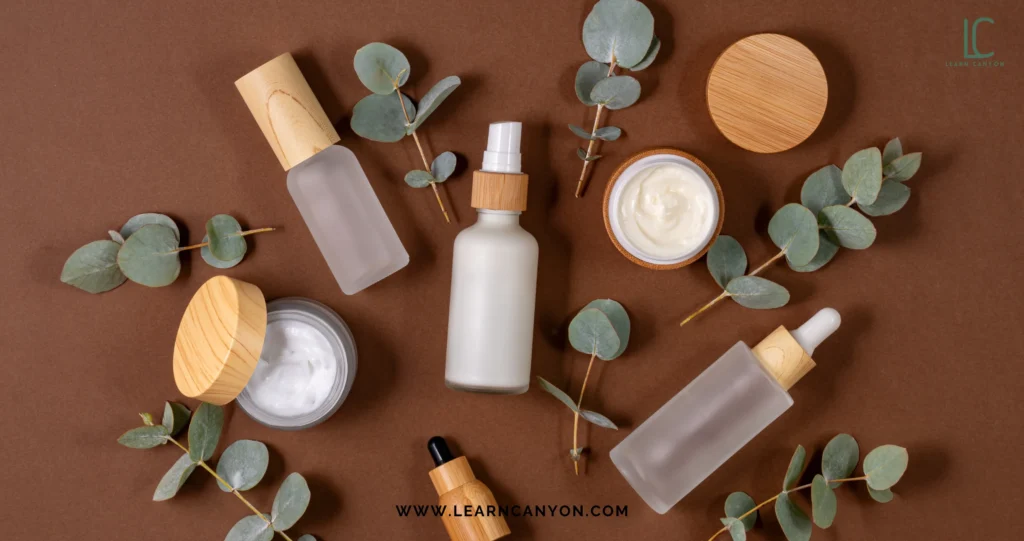
Effective Marketing Channels For Skincare Brands
Selecting the right marketing channels is essential for reaching and engaging your target audience in the skincare industry.
Here are some of the most effective marketing channels for skincare brands:
- Social Media Platforms such as Instagram, Facebook, Pinterest, etc.
- Content Marketing such as Blogging and Video Content
- Email Marketing such as newsletters and personalized campaigns
- Influencer Marketing such as collaborations and product reviews
- SEO
- Paid advertising; Google ads and social media ads.
- E-commerce platforms; online stores.
- Public Relations such as press releases and media coverage
Measuring Marketing campaigns For your Niche Skincare Brand
Tracking and analyzing the performance of your marketing campaigns is crucial for understanding their effectiveness and optimizing future efforts.
Here are key metrics and tools to measure your marketing campaigns:
- Key Performance Indicators (KPIs)
- Measure how many people have seen your content (reach) and how many times it has been displayed (impressions). Track likes, comments, shares, and saves on social media posts to gauge audience interaction.
- Click-Through Rate (CTR): Monitor the percentage of people who click on your ads or links in your emails.
Measure the percentage of visitors who complete a desired action, such as making a purchase or signing up for a newsletter.
- Calculate the total cost of acquiring a new customer, including all marketing and sales expenses. Assess the profitability of your marketing campaigns by comparing the revenue generated to the cost of the campaign.
2. Analytics Tools
- Track website traffic, user behaviour, and conversion rates. Use it to identify which channels are driving the most traffic and sales.
- Social Media Insights: Use built-in analytics tools on social media platforms (e.g., Instagram Insights, Facebook Analytics) to monitor engagement, reach, and follower growth.
- Email Marketing Platforms: Use analytics provided by email marketing platforms (e.g., Mailchimp, Klaviyo) to track open rates, click-through rates, and conversions.
3. Customer Feedback and Surveys
Measure customer satisfaction and loyalty by asking customers how likely they are to recommend your products to others. Collect feedback through surveys and online reviews to understand customer preferences and areas for improvement.
4. A/B Testing
Conduct A/B tests on different versions of your ads, emails, landing pages, and social media posts to determine which performs better.
5. Attribution Models
Use multi-touch attribution models to understand how different marketing channels and touchpoints contribute to conversions.
6. Sales and Revenue Data
Track sales data to identify trends and measure the impact of your marketing efforts on revenue. Calculate the total revenue a customer is expected to generate over their relationship with your brand.
Build and Maintain Brand Loyalty in Niche Skincare Brand
Building and maintaining brand loyalty in your niche skincare brand is crucial for the long-term success of any skincare brand.
Here are some effective strategies to foster loyalty among your customers;
1. Deliver High-Quality Products
Ensure that your skincare products consistently meet high-quality standards. This builds trust and reliability. Continuously improve and innovate your product formulations to address evolving customer needs and preferences.
2. Provide Exceptional Customer Service
Offer responsive and helpful customer support through multiple channels (email, social media, live chat). Provide personalized skincare advice and product recommendations based on individual customer needs.
3. Engage with Your Community
Actively engage with your audience on social media by responding to comments, messages, and reviews. Encourage customers to share their experiences with your products using branded hashtags. Feature their content on your social media and website.
4. Personalize Marketing Efforts
Use customer data to create targeted marketing campaigns that address specific interests and needs. Send personalized emails and recommendations based on past skincare product purchases and browsing behaviour.
5. Collect and Act on Customer Feedback
Regularly collect feedback through surveys and reviews to understand customer satisfaction and areas for improvement. Act on feedback to improve products and services. Show customers that their opinions are valued and impactful.
Final Thoughts,
From the above points, we understood how niche marketing helps your skincare brand to stand out in a crowded cosmetic market in a detailed way where we explained how to identify the niche target audience, how to find a niche in skincare brand, customised formulations and product development, creating unique selling propositions, market positioning for your niche brand and maintaining the loyalty of your niche cosmetic brand.
Therefore, in the crowded skincare market, standing out requires more than just a high-quality product; it demands a strategic approach to niche marketing. By focusing on a specific market segment, skincare brands can effectively differentiate themselves, build strong connections with their target audience, and foster long-term loyalty.
We at Learn Canyon, help our formulators understand this niche skincare brand concept in a practical way where we break down skincare formulation strategies for creating different skincare products based on specific skin needs using cruelty-free resources. You can enroll in our advanced organic skincare formulation programs to create your niche-based skincare products in the right way!
So why wait? Contact us now!
References
- https://fastercapital.com/content/Skincare-niche-market–From-Lab-to-Shelf–Creating-a-Successful-Skincare-Startup.html
- https://arbropharma.com/usp-unique-selling-point-in-cosmetic-business/#:~:text=Your%20USP%20should%20clearly%20define,for%20in%20your%20cosmetic%20business.
- https://fastercapital.com/content/Cosmetic-product-positioning-The-Art-of-Cosmetic-Product-Positioning–A-Comprehensive-Guide.html#:~:text=%2D%20Nuance%3A%20Before%20positioning%20a%20cosmetic,and%20above%20who%20prioritize%20skincare.
- https://www.kompyte.com/blog/position-brand-crowded-market/




